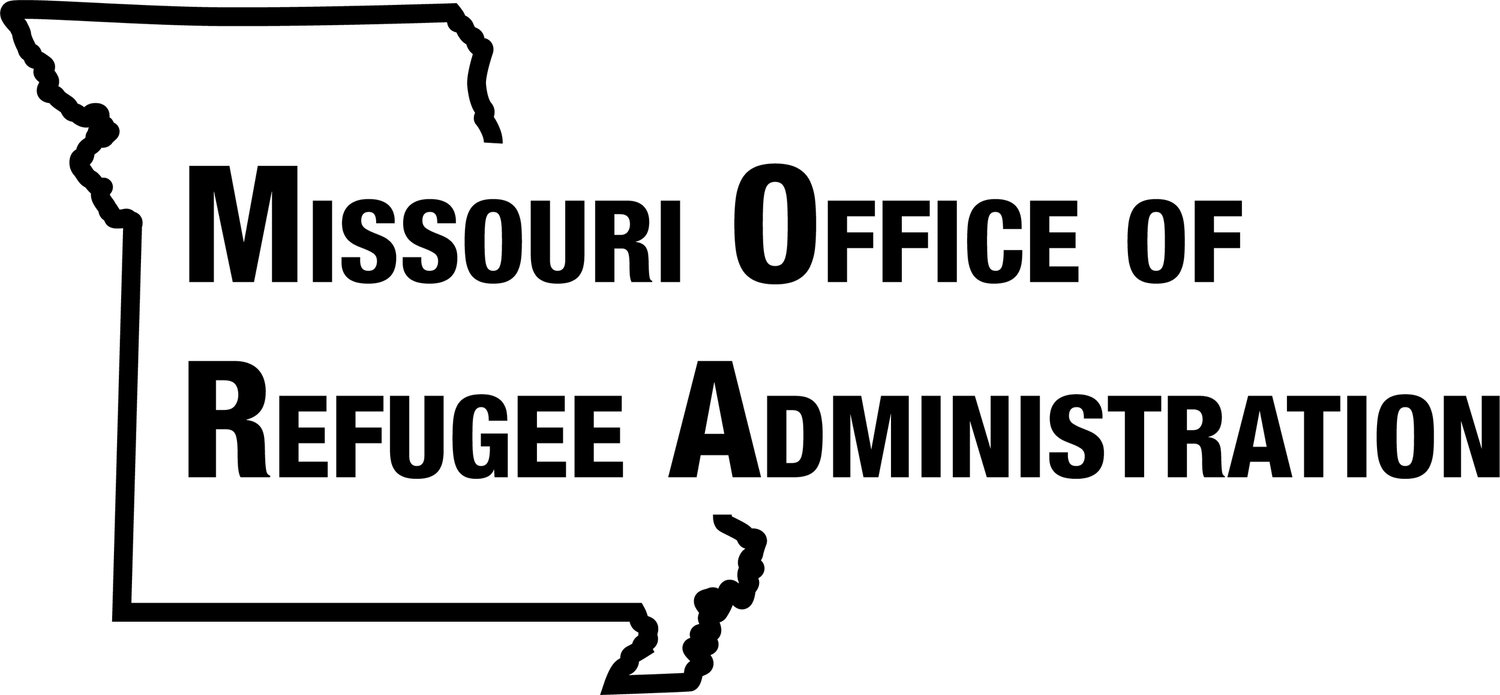RAISE Launches New Refugee Wellness Program
By Sophia Donis
Refugee And Immigrant Services & Education (RAISE), a local resettlement agency in Joplin, is on a mission to improve the wellness of their refugee clients.
In June, RAISE launched their new Wellness Program focused on refugee wellness, health education and health navigation. Each section of the program is designed to address specific challenges experienced by refugees with the goal of improving their overall wellness.
Five art pieces created during a guided art session in June 2024. Photo courtesy of RAISE.
Small Groups
The refugee wellness component is composed of small group activities for clients to focus on healing, building connections, and learning new skills. 63 clients are currently enrolled in the wellness groups with the option of participating in guided art therapy sessions, dance classes, a strategic gaming club, a community gardening group, and an adult soccer team.
When determining which wellness groups would be created first, Zach Castle, RAISE Health Coordinator, said part of the process involved brainstorming ideas with staff, collecting informal feedback from clients and surveying caseworkers. They also considered funding limitations and volunteer capacity.
“We found a happy medium between what clients want and what caseworkers believe they would benefit the most from because those two answers aren’t always the same,” he said.
Wellness groups are also open for local residents. Castle says this adds a layer of integration efforts to activities and creates an open door to the community for clients. The instructor-led dance classes have already seen success in this area, with the first six-week session having 10 clients and 10 community members participating.
Measuring Client Wellness
Before starting the program, clients take the Perceived Wellness Survey, which measures an individual’s perception of their physical, spiritual, and emotional wellness. Each client is given an overall wellness score based on their results so there is a baseline number to build upon. After participating in a few of the wellness groups, clients retake the survey and should see an increase in their wellness score.
Castle says many clients have never taken an assessment like this before and often shut down when asked to give an honest answer about how they’re feeling.
“A lot of people come from a culture that if they are honestly admitting to struggling, it’s shameful,” he said.
He has also seen clients immediately shy away from numbers on the survey and respond with “I’m not good at numbers. I don’t know how to do this. Math is scary. Numbers are scary.”
Castle’s proposed solution is to utilize different metrics on the survey, such as pictures or other visuals to depict emotions instead of numbers on a spectrum. However, implementing new changes to the survey has become a complex process and Castle’s biggest challenge thus far.
He explains that if too many adjustments are made to the overall survey or to the structure of the questions while translating, the questions could end up having an entirely different meaning. This then compromises the validity of the survey and produces inaccurate results.
Perfecting the survey is an ongoing process, and Castle says he’s open to collaborating with anyone who has experience with wellness surveys or knowledge of best practices, especially since it’s been difficult to find resources on measuring the wellness of refugees.
Looking Toward the Future
In the next six months, RAISE is hoping to implement cooking classes, writing workshops, fitness clubs, support groups for new parents, and organized excursions around Joplin.
“Our imagination is running off the charts, and we’re just trying to be as creative as we can to offer a wide variety of things that would appeal to clients,” Castle said.
As the refugee wellness section of the program continues to grow, RAISE is finalizing plans for the health education and health navigation components. The health education section will teach clients about hygiene, nutrition, and physical wellness. Meanwhile, the health navigation section will help clients find healthcare providers, understand Medicaid, and learn about the U.S. healthcare system.
The program is currently funded through a refugee health promotion grant from U.S. Committee for Refugees and Immigrants (USCRI), the Medical Replacement Designee for Missouri responsible for administering the health portion of the resettlement program statewide.
To continue developing new wellness groups, RAISE is looking for volunteers with skills or hobbies that can be taught to others. Almost all the wellness groups are volunteer led, so additional wellness groups can’t be implemented without more volunteers. Anyone interested can fill out the RAISE volunteer interest form.

